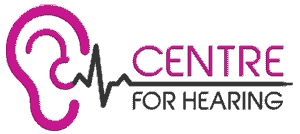Balanced Diet for Better Hearing
There are lots of important minerals, but these few are crucial for preserving good hearing. Potassium is responsible for regulating the amount of fluid in your blood and body tissue. … Potassium-rich foodsinclude: potatoes, spinach, lima beans, tomatoes, raisins, apricots, bananas, melons, oranges, yogurt and milk.
Minerals play an important role in our overall health and proper body function. Calcium builds strong bones and teeth. Zinc is an important mineral for boosting the immune system. But what you may not know is that some minerals are critical elements for protecting your hearing health.
What are minerals?
Minerals are inorganic substances found in soils and rocks and are essential nutrients the body needs to survive and carry out daily functions and processes. We get minerals by eating plants that absorb them from the earth and by eating meat from animals that graze on plants.
There are lots of important minerals, but these few are crucial for preserving good hearing.
Potassium
Potassium is responsible for regulating the amount of fluid in your blood and body tissue. That’s important to your hearing health because fluid in the inner ear, that part of the ear that translates the noises we hear into electrical impulses the brain interprets as sound, is dependent upon a rich supply of potassium. As we age, those levels naturally drop which could contribute to presbycusis — or age-related hearing loss.
Potassium-rich foods include: potatoes, spinach, lima beans, tomatoes, raisins, apricots, bananas, melons, oranges, yogurt and milk. With springtime picnics marking the calendar, think about making your favorite potato salad or bring along a fruit salad with citrus and melons for tasty and potassium-rich side dishes.
Folic Acid
Folic acid is a critical element in your body’s ability to generate new cell growth. Studies have shown that adults with low levels of folic acid in their blood are more likely to develop presbycusis. Some studies show folic acid supplements may slow down hearing loss. That might be because the body uses folic acid to metabolize homocysteine, an inflammatory compound that reduces circulation. Good circulation is an important component in keeping the hair cells of the inner ear healthy and working properly. Folate-rich foods include organ meats, spinach, broccoli and asparagus.
Foods rich in folic acid: Leafy greens, beans, breads, rice, and pastas
Magnesium
Research conducted at the University of Michigan Kresge Hearing Research Institute has shown that people pretreated with magnesium (along with Vitamins A, C, and E) were protected from noise-related hearing loss. Scientists believe this is because magnesium combats the effects of free radicals emitted during loud noises — almost like a protective barrier for the delicate hair cells in the inner ear. Also, lack of adequate magnesium in the inner ear causes the blood vessels to shrink, depriving it of valuable oxygen.
Foods rich in magnesium include fruits and vegetables such as bananas, artichokes, potatoes, spinach, tomatoes and broccoli. Spring is the perfect time for fresh artichokes. Cook them in boiling water 20-30 minutes and serve them with warmed butter or a cool dill yogurt dip. Bonus — the yogurt dip will provide potassium too!
Foods rich in magnesium: Spinach, chard, pumpkin seeds, yogurt, almonds, black beans, avocado, dark chocolate, and bananas
Zinc
Zinc boosts body’s immune system and is also responsible for cell growth and healing wounds, so it’s potentially helpful in warding off germs that cause the common cold and even pesky ear infections. Some studies suggest it’s also effective in treating tinnitus in individuals with normal hearing. Zinc does interact with antibiotics and diuretics though, so seek a physician’s advice before using supplements.
Foods rich in zinc include beef, pork and dark-meat chicken, cashews, almonds, peanuts, beans, split peas, lentils, oysters and dark chocolate. Try making homemade granola bars to get your fill of zinc. Nuts and dark chocolate work great as key ingredients, along with oats, popped quinoa, raisins, dried cranberries and coconut flakes. Honey and nut butters work well as binders. Search online to find recipes like this one from Love and Zest. Once you get comfortable with the process, tweak recipes to your liking.
Foods rich in zinc: Oysters, red meat, poultry, beans, nuts, seafood (crab/lobster)
Vitamin B-12 and C
These vitamins are different in name but have one common goal — supporting your hearing health. Hearing loss has been linked to B-12 deficiencies and the development of certain forms of tinnitus.
Vitamin C is considered an antioxidant as it helps your body create collagen, a key protein utilized for growing and maintaining bones, blood vessels, skin, and connective tissue. Some research indicates that when large doses of Vitamin C are taken before and after noise exposure along with fellow antioxidants Vitamin A, E, and magnesium, it might reduce noise-induced hearing loss. It may also be helpful in preventing or fighting ear infections.
Foods rich in B-12:Dairy products, shellfish, poultry
Foods rich in Vitamin C: Fruits like oranges, strawberries, grapefruit, guava, and kiwi. Vegetables like red peppers, kale, Brussels sprouts, broccoli, and green peppers
Eat well to feel and hear well
It’s important to consume a well-balanced diet in order to obtain all the nutrients your body needs to function properly. Certain foods rich with vitamins and minerals could aid in the preservation of your hearing. Any specific questions about hearing loss in relation to your diet and overall health should be discussed with your hearing care professional.

